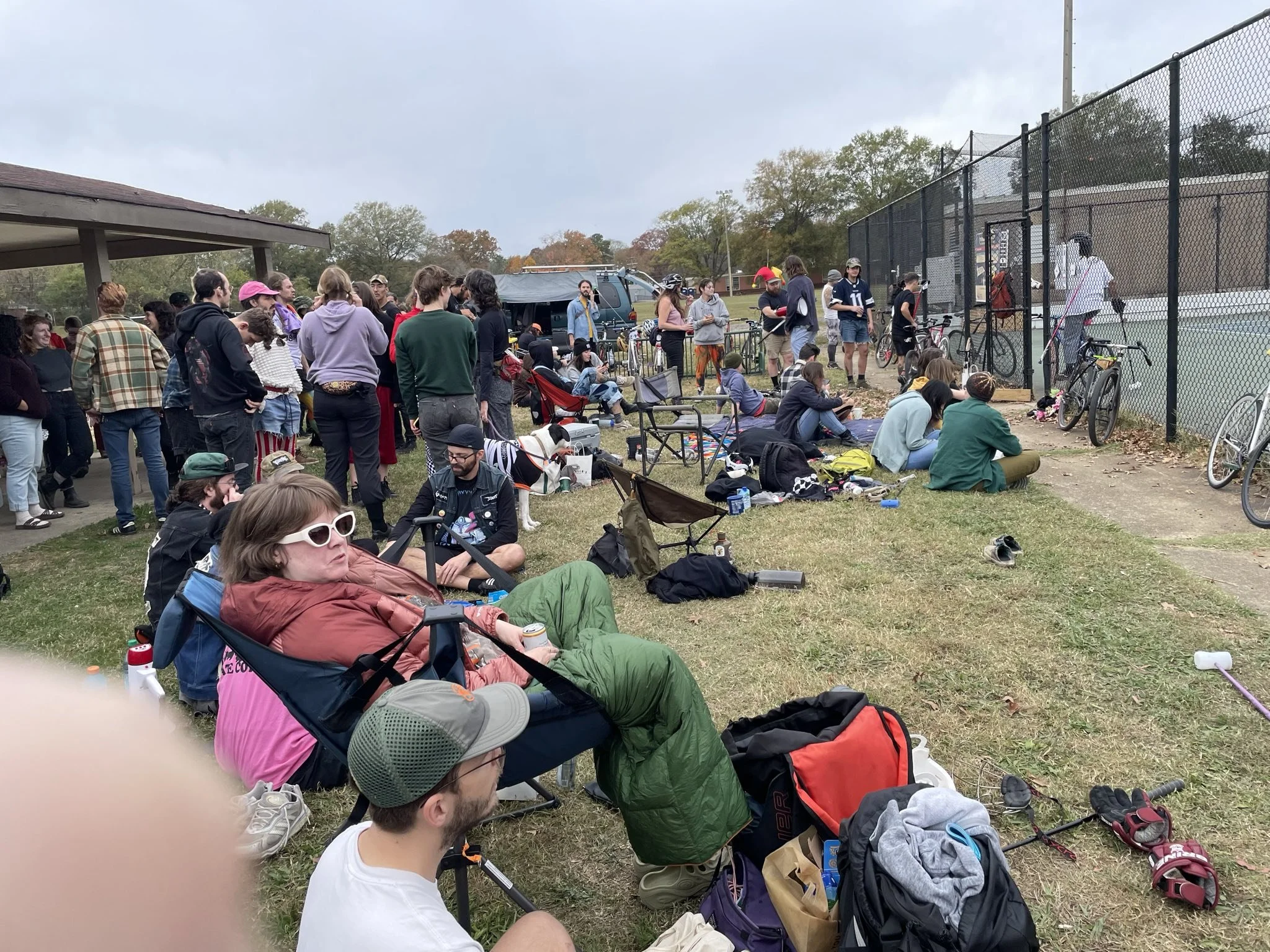don’t call it a comeback
Year: 2024
Context: Event coordination, user experience
Role: Coordinator, Systems design, Athlete
reimagining an overused event format to improve player retention and excitement for the sport
Challenge:
Traditional shuffle-format tournaments group players once based on skill tiers (A/B/C) and keep teams constant through the tournament. This limits variety, and players may not interact with everyone or get a chance to experiment with different teammate dynamics.
Insight: The core experience at these shuffle events isn’t winning, it’s maximizing meaningful play, engagement, and variety.
My role:
Designed and implemented a new tournament format that maximized player engagement, variety, and fairness. Coordinated event planning, scoring and team assignments during the event, and created mini-games and inter-round challenges to enhance the overall experience.
process:
Enhance the typical shuffle format by randomizing the player pool every round in seeding games, allowing each participant to:
Play with different teammates every game
Compete against different opponents every game
Guaranteed participants the ability to play with and against every player at the event at least once
Utilized data driven skill rankings by tracking goals per player on Saturday’s seeding rounds to recalibrate A/B/C skill brackets for Sunday team selection
Saturday teams: Pre-determined using spreadsheets, focus on playing as many rounds as possible over perfectly balanced teams for each game.
Sunday teams: Formed balanced teams with one player from each A/B/C skill bracket per team, focus on providing balanced teams to play with all day, creating a fair yet competitive experience.
outcome:
Players experienced greater game variety and social interaction than in a traditional shuffle tournament
Increased total playtime and engagement with 12 seeding rounds, mini-games, and a triple-elimination bracket on Sunday
Data-informed team assignments improved fairness and competitive balance, providing high-intensity play for advanced participants, and ample learning opportunities for entry level participants
Received positive feedback from participants for the unique, dynamic format, praise for the increased number of seeding rounds, and some concerns for the tripple elimination format which lead to under-utilized courts later in the bracket
Physical Insight:
Working on the tournament reinforced that structure and experience are inseparable. Designing a system that maximized variety, fairness, and engagement required thinking beyond standard formats, Simple tweaks such as re-shuffling teams each round, using data to adjust skill tiers at an appropriate moment, and inserting mini-challenges and group activities were all experiments in crafting a meaningful event.
For players, the results were immediate: more connection, more play time, more fun. For me, it was a reminder that iteration isn’t just refining what exists, it’s about creating conditions for discovery, testing assumptions in real time, and shaping an experience that endures beyond a single event. It’s easy to reflect after the fact and see that, especially given such a positive outcome; however, these reflections only came to light by trusting the process. On Saturday morning, there were many grumbles and concerns among players and organizers about how many different teams there were, how many rounds of games we planed to play, and how little time that left us to get 12 different players on the courts every 15 minutes. Rather than abandoning the script at that moment, we pushed forward, ready to observe how it would actually play out rather than assume we knew correctly. Turns out, we were wrong in our assumptions, and the format did work spectacularly!
Many thanks to the countless RVA Bike Polo clubmates who helped organize and run the event, kept games on track and exuded humor and joy all day. To the players who traveled from across the region, your feedback and support made it possible. This was Richmond’s first bike polo tournament since 2018, and seeing it not only sell out, but spark two more tournaments the following year made the effort feel truly worthwhile.



